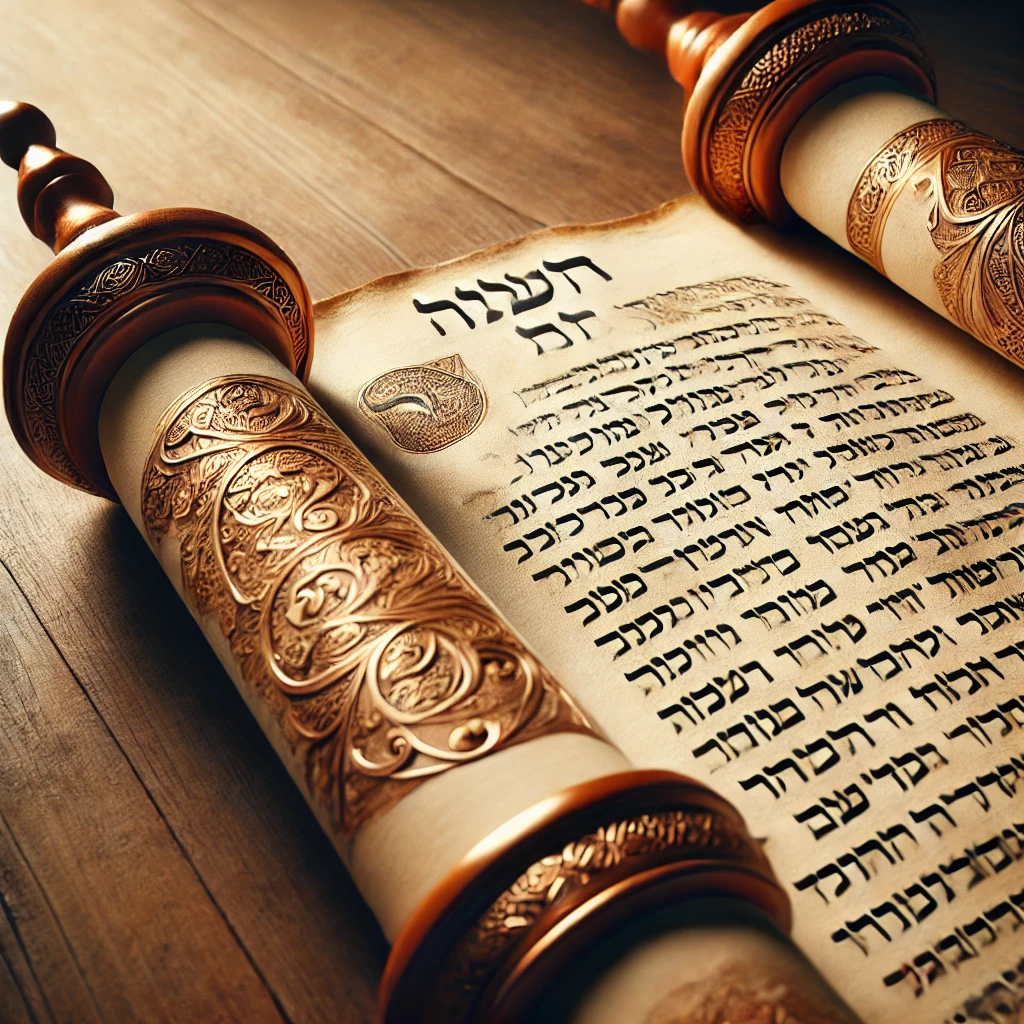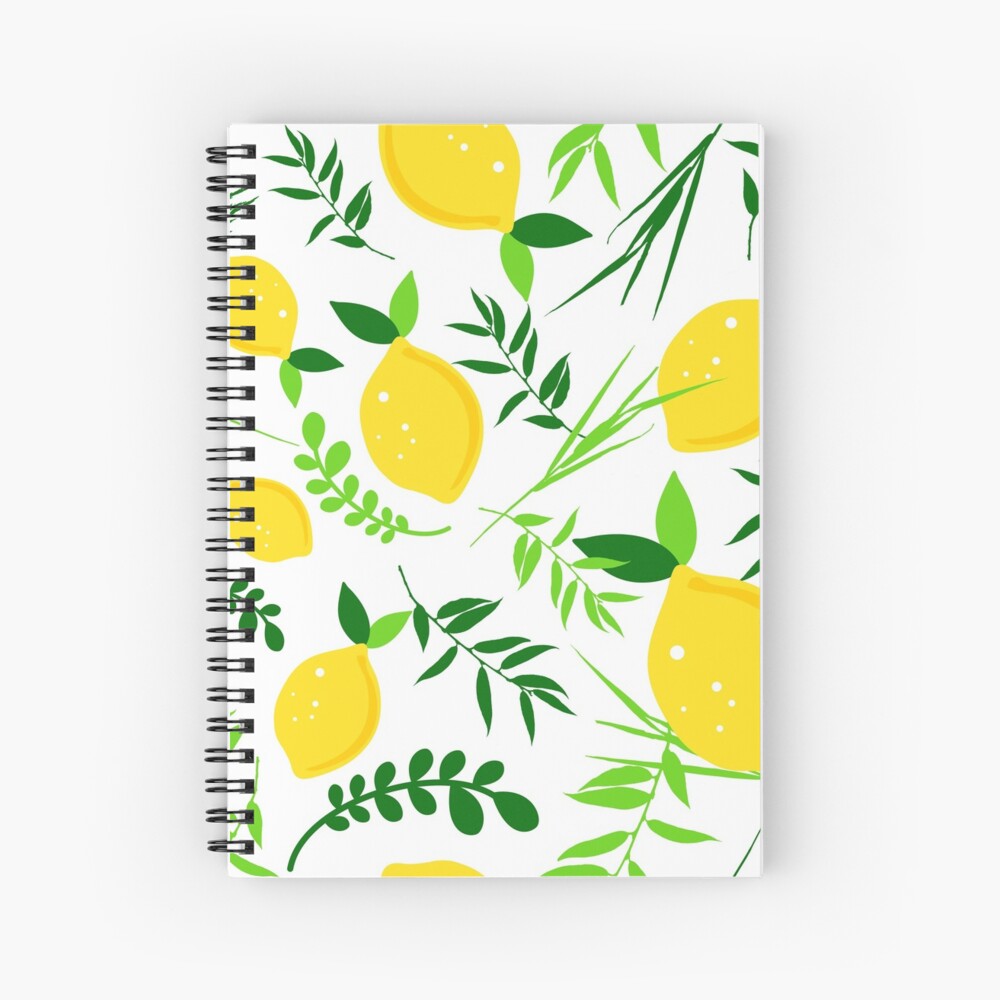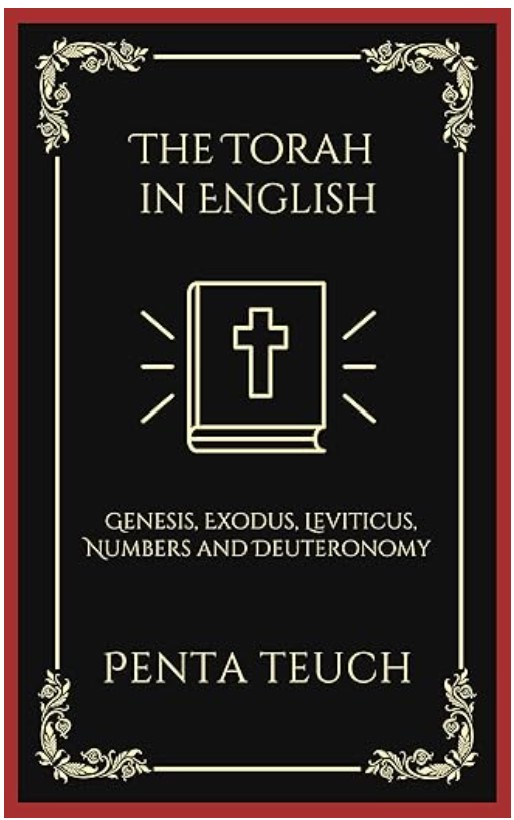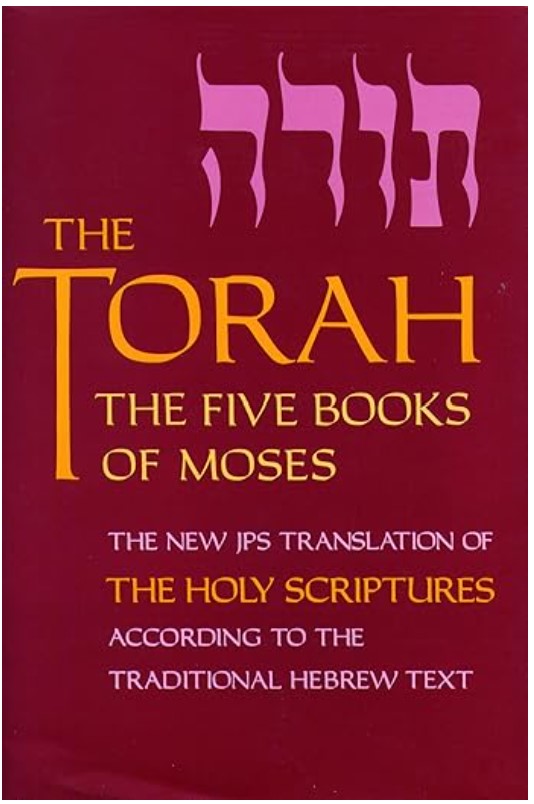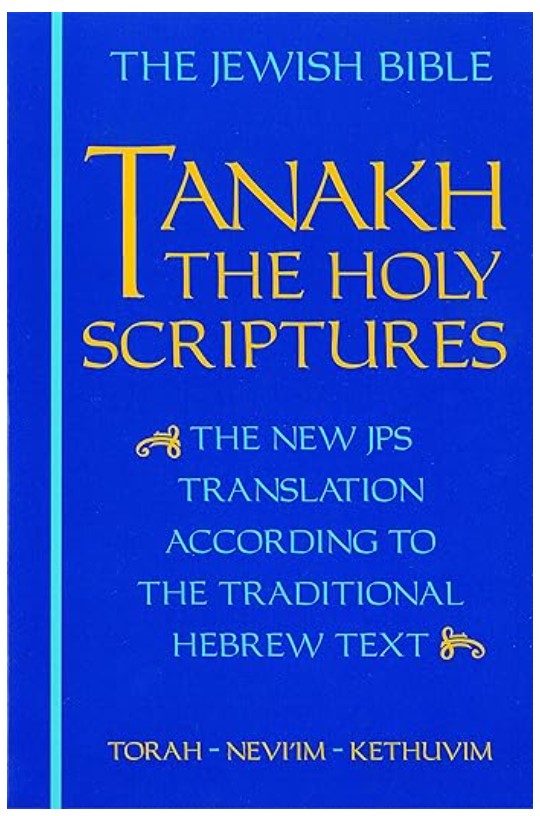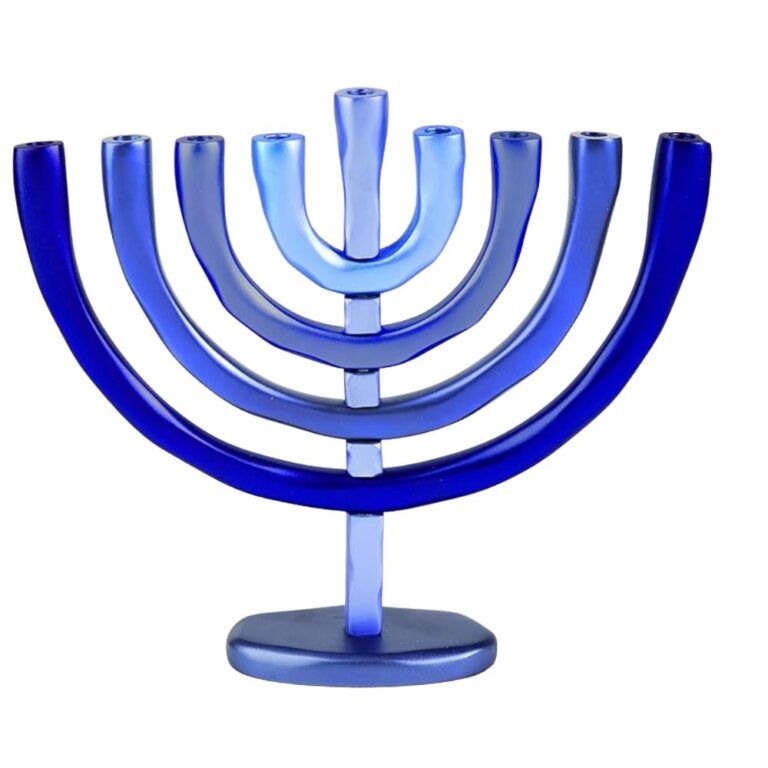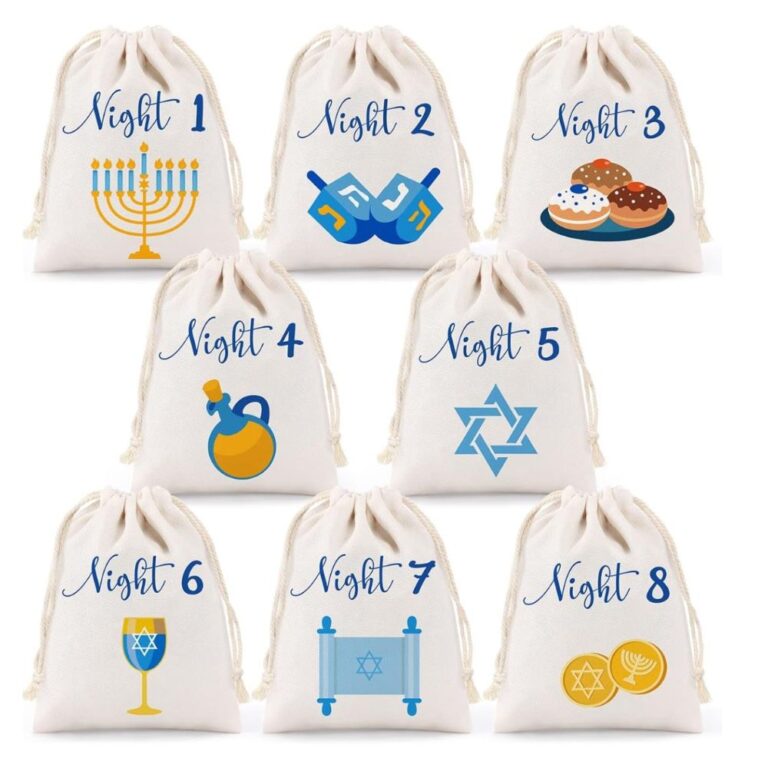Table of Contents
During Sukkot, specific Torah readings are assigned for each day of the holiday. These readings come from various sections of the Torah, and the selections are tied to the themes of the festival, such as agricultural harvests, the temporary shelters (Sukkah), and the Israelites’ journey through the desert. Here is a breakdown of the Torah readings for Sukkot:
1. First Day of Sukkot
– Torah Portion: Leviticus 22:26–23:44
– Theme: This portion outlines the laws of the festivals, including Sukkot, with a focus on the commandment to dwell in booths and the agricultural aspect of the holiday.
2. Second Day of Sukkot (Diaspora)
– Torah Portion: Leviticus 22:26–23:44 (same as the first day)
– Theme: In the Diaspora, the second day repeats the same Torah reading as the first day.
3. Chol HaMoed (Intermediate Days)
– Torah Portions: Various readings come from the sections in Numbers 29:12–31. These portions detail the additional sacrifices brought during the festival.
– Theme: Each day of Chol HaMoed has specific readings that outline the offerings the Israelites were required to bring on each day of Sukkot in the Temple.
4. Shabbat during Sukkot
– Torah Portion: Exodus 33:12–34:26
– Theme: This portion includes the story of Moses asking God to forgive the Israelites for the sin of the Golden Calf, the second set of Tablets, and the commandment to observe the festivals, including Sukkot.
5. Hoshana Rabbah (The Seventh Day of Sukkot)
– Torah Portion: Numbers 29:26–31
– Theme: This portion continues the description of the offerings brought on the seventh day of Sukkot, focusing on the final sacrifices.
6. Shemini Atzeret (Eighth Day of Assembly)
– Torah Portion: Deuteronomy 14:22–16:17
– Theme: The readings include discussions on tithes, the Sabbatical year, and the commandment to rejoice on the festivals.
7. Simchat Torah (Rejoicing of the Torah)
– Torah Portion: Deuteronomy 33:1–34:12 and Genesis 1:1–2:3
– Theme: On Simchat Torah, the annual cycle of Torah reading is completed with the final chapter of Deuteronomy and begins anew with the first chapter of Genesis.
These readings emphasize the agricultural, historical, and spiritual aspects of Sukkot and reflect the celebratory and reflective nature of the holiday.
*Please note The Kosher Hub is not a religious authority – please consult your Rabbi or Chabad for further and more indepth information*
FREE JEWISH WALL CALENDAR 2025/5785
The Kosher Hub has designed a beautifully iconic Jewish Calendar with all the important holidays for this coming year that you can download for FREE.
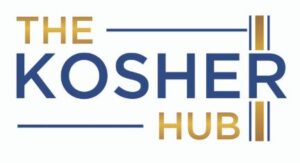



Our Sukkot Range
FREE Sukkot Blessing Card
Download your FREE digital Blessing card and have it ready to go in your Sukkah
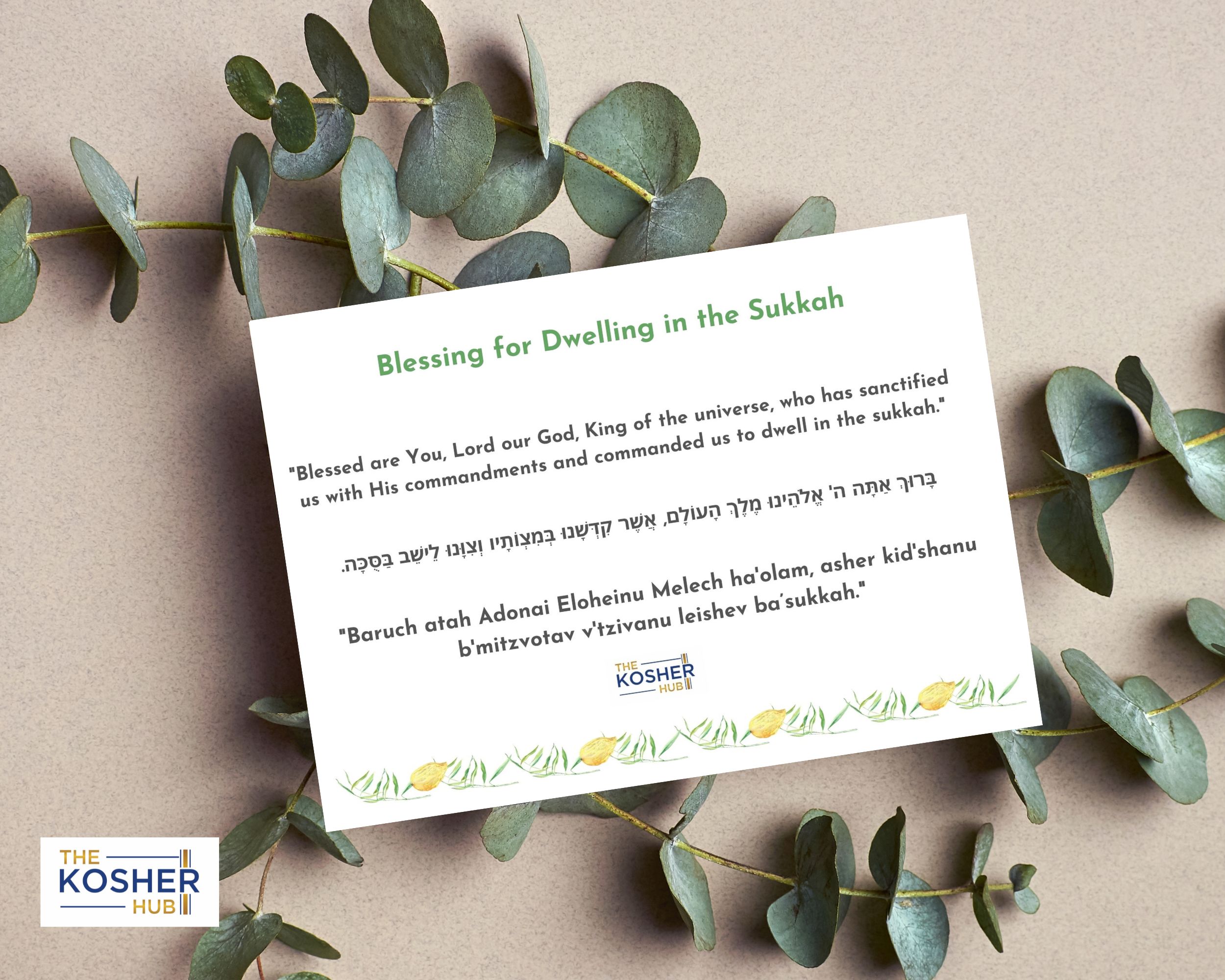

Sukkot is a time for Reflection
FREE 10 Page Digital Sukkot Reflection Journal
Sukkot is a wonderful opportunity to reflect on many aspects of our lives.
Here in this journal you can reflect on 10 important questions.
Download yours below
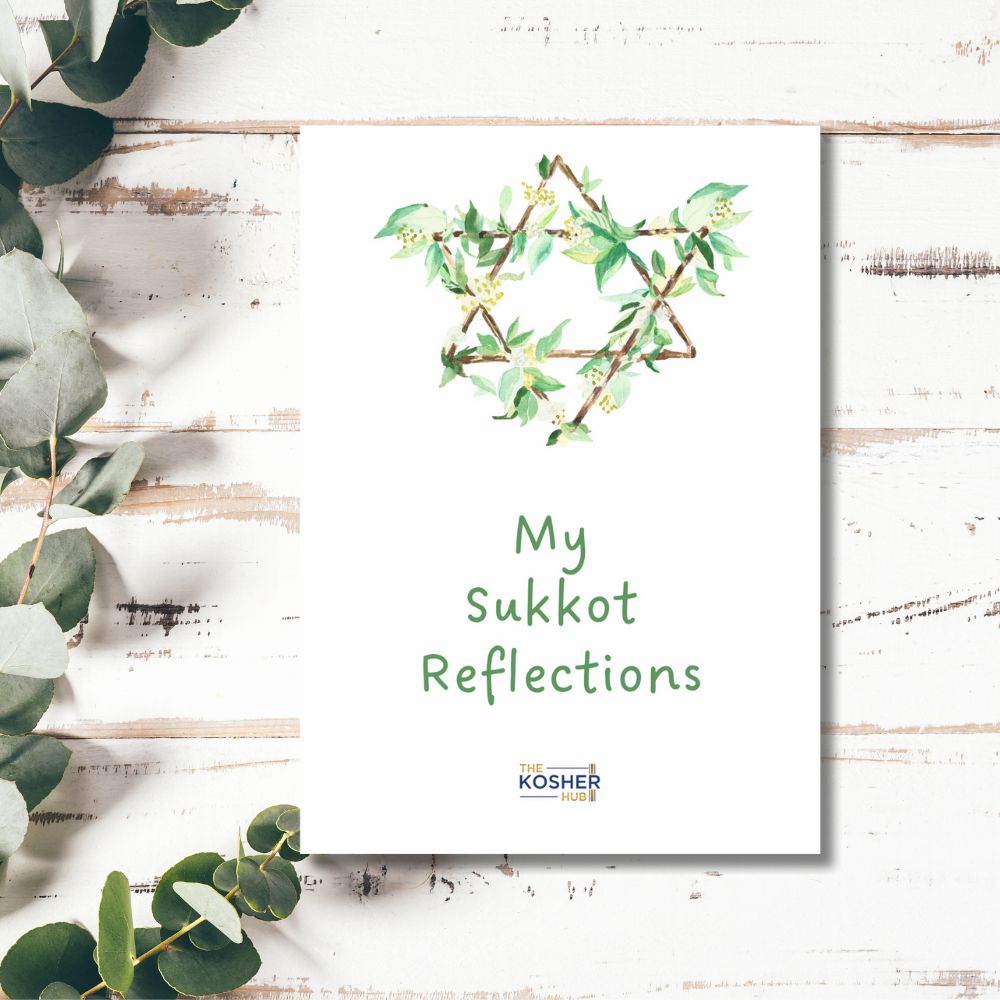

Get into the Spirit of Sukkot!


